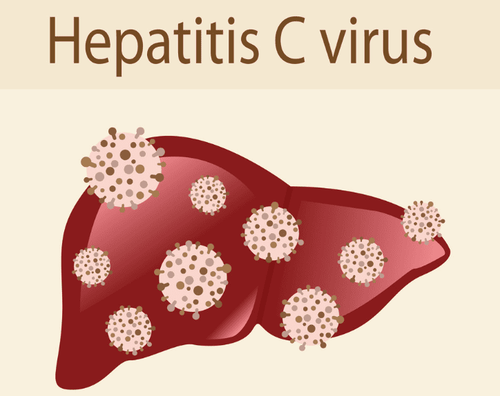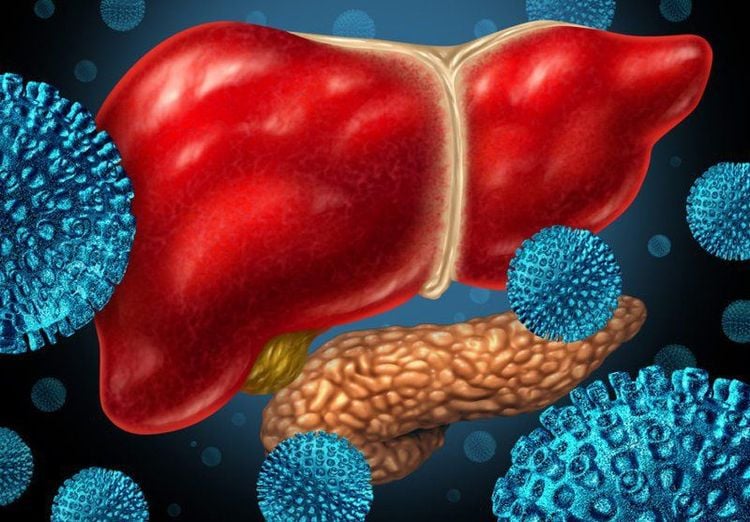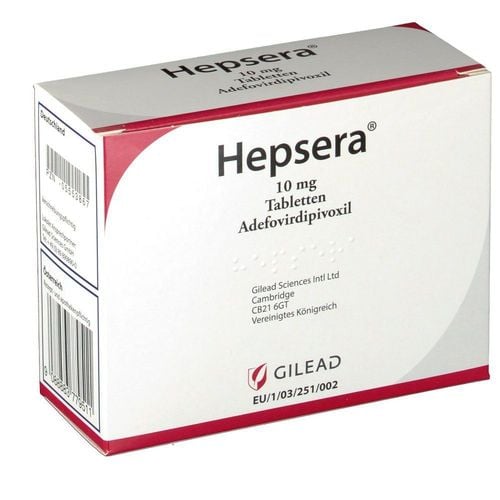This is an automatically translated article.
The article was professionally consulted with Specialist Doctor I Tran Quoc Vinh - Emergency Doctor - Department of Resuscitation - Emergency - Vinmec Nha Trang International General Hospital.1. What is Hepatitis C?
Hepatitis C is a liver infection caused by the hepatitis C virus HCV. This is one of the most dangerous hepatitis viruses, greatly affecting liver function.Not only has a strong attack power, but the hepatitis C virus after entering the body often has no obvious symptoms. The disease progresses silently. Patients only discover abnormal liver symptoms when it is in the late stage. Most cases of hepatitis C are discovered in the early stages by chance.
Hepatitis C can progress to chronic hepatitis and lead to life-threatening complications such as cirrhosis, liver cancer, liver failure.

2. Symptoms of Hepatitis C
In the early stages, the disease has no specific symptoms. After the virus enters the body for about 1-3 months, the patient begins to have symptoms such as:Jaundice, yellow eyes; Urine turns dark dark color; Pale colored stools; Mild fever; People who are tired, aching muscles and joints; Anorexia; Nausea, vomiting; Stomachache. Patients in the late stage, when the liver has had serious damage, will appear symptoms of chronic liver failure such as:
Easy bleeding, Long lasting bruises (due to impaired function creating coagulation factors) Body itching (due to impaired detoxification function) Leg swelling, ascites (due to decreased albumin synthesis) Severe weight loss (due to decreased metabolic ability, bile secretion function causes anorexia, nausea, abdominal pain, digestive disorders, restriction of nutrient absorption) There is a phenomenon of floating blood vessels like spider webs on the skin (due to cirrhosis of the liver, which interferes with circulation back to the heart, leading to dilated vessels) indirect bridging blood return to the heart causing collaterals). When you have the above abnormal signs, you should immediately go to medical facilities so that the doctors can conduct an examination, diagnose the disease and have timely treatment methods. Listen to your body to see even the smallest changes.

3. How is hepatitis C transmitted?
Hepatitis C is an infectious disease. The most common route of hepatitis C infection is through blood. According to the World Health Organization, the most common ways of transmitting the hepatitis C virus include:Sharing needles with someone who has hepatitis C; Sharing or reusing medical equipment containing the hepatitis C virus that has not been properly disinfected; Receiving blood or transfusions from blood products that have not been carefully tested. In addition to blood-borne hepatitis C, there are also a number of less common routes of hepatitis C infection such as:
Having sex with someone infected with hepatitis C; Hepatitis C is transmitted from mother to child; Carers of hepatitis C patients, often in contact with the patient and their personal hygiene items such as: toothbrushes, face towels, drinking cups, bowls, chopsticks, spoons, clothes. ..; Tattooing with unsterilized tattoo tools, which contain the hepatitis C virus. The World Health Organization (WHO) estimates that in 2015 an estimated 1.75 million people worldwide were infected with hepatitis C. One patient had hepatitis C. Hepatitis C can spread within cells in as little as 2-24 weeks.

Please dial HOTLINE for more information or register for an appointment HERE. Download MyVinmec app to make appointments faster and to manage your bookings easily.














